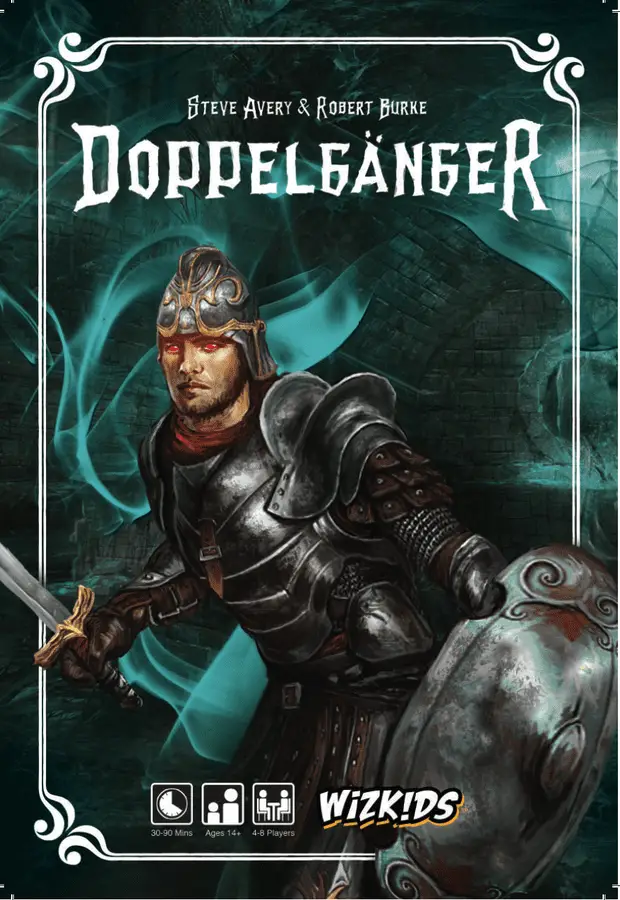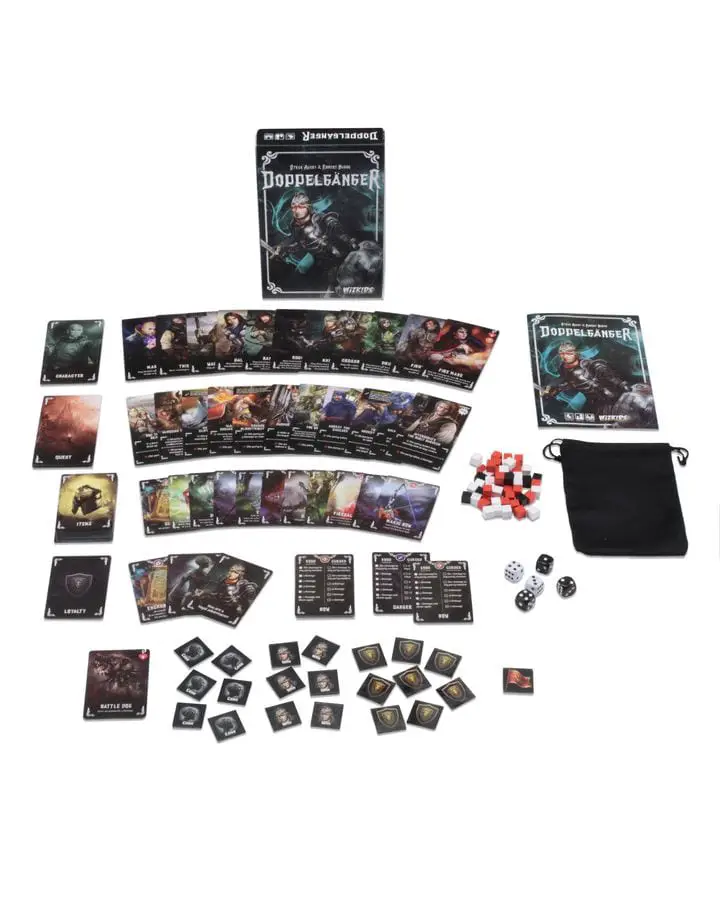Rule number one: don’t split the party. There are good reasons for this rule, sure. Sometimes though, the warrior really needs to rest up and heal. Sometimes the wizard is all out of spells. Sometimes your rogue starts acting… shadier than usual. This is why every good adventuring group should have a favorite inn. WizKid’s Doppelgänger sees players splitting their time between the fight and the flagon. But just like that choice to stay behind, this game is more than a roll of the dice.

Doppelganger starts with assembling the party, and there are options. Sixteen, in fact. These options can be narrowed down by weapon type: magic, melee, and ranged. All characters can use daggers, and you’ll be grateful for that later. Once the party is assembled, it’s time to get some starting loot and go adventuring. Players will face mighty foes that will require some planning and teamwork to take down. If the players are successful, they can get their loot and continue on. Failure comes at a cost, and depending on the foe, that cost can be fatal. Either way, fighting is exhausting, and any player who took part will gain an exhaustion token.
Now, I’ve definitely spent a day running only on the energy coffee could give me. And your adventurers can make the choice to continue going, exhausted or not. They will get themselves hurt if they continue—any character who is exhausted at the end of the fight takes a wound instead of taking another exhaustion token. Avoiding this is simple: spend some time at the inn. While at the inn, players can take one of three actions, and always lose their exhaustion. If you’re at the inn though, you cannot help the rest of your party. Choose wisely.

Loot is exceptionally important, as is dividing it amongst your party. Players pass loot around throughout the game, and will choose only one item to bring with them to the fight. But those items get jumbled around in transit, and hey… where did that come from? Two items are added at random to the shuffled pile of player items that will be distributed to the fighters. Oh, and you drop some along the way, or well, something happens to them… who can say? Remember those daggers? Here is where they save you. You can only contribute to the fight if you are given a weapon you can use. If all the weapons are bows and you can’t use ranged weapons, you cannot contribute to the fight… awkward.
If it seems like something is going on, something is going on. Some of your party members are not who they say they are. They are doppelgängers, and they want to make sure you lose. At the start of the game, everyone is given a hidden role card. So not only are you trying to defeat difficult foes and banish evil, you also need to figure out if you can trust your party. Or, alternatively, you have to convince your party to trust you so you can bring about their ultimate doom. Both sides are looking to uncover artifacts, and whichever side collects all three first wins. As always, things are easier for the villains: if a hero dies, the doppelgangers win.

Doppelgänger is surprisingly complex. The game actually provides a walkthrough within the rule book, as the rules are more easily understood through play. It was a thoughtful addition, and one my table was grateful for. This seems like a game that will really take off after a few play-throughs, and will offer vastly different experiences depending on player number. Doppelgänger would be challenging even without the hidden role aspect, which makes victory feel all the sweeter. Even if you have a lot of deception fueled games in your collection, this one will stand out. So get your friends together, and this time, maybe split the party.

